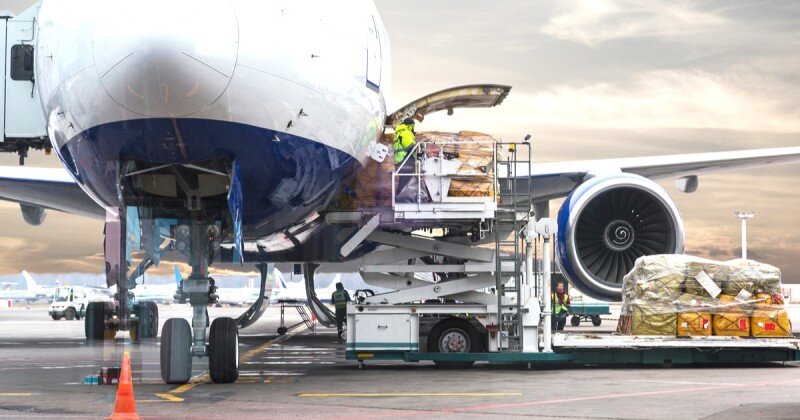
Despite the lack of belly-hold capacity, demand for air freight remains strong as ocean freight struggles with persistent reliability and capacity issues, says DHL.
Capacity shortages and soaring ocean freight rates are driving demand for air cargo, causing headaches for those looking for greater certainty in their supply chain.
According to the latest DHL Air Freight State of the Industry, e-commerce is contributing to robust air demand, while a variety of factors including port congestion, astronomical ocean rates, and inventory re-stocking, continues to divert previously ocean-reliant cargo to air.
Strikingly, the International Air Transport Association (IATA) reported that global demand in May, the most recent month for which data is available, was up 9.4 percent compared to May 2019 measured in cargo tonne-kilometres, while capacity was 9.7 percent lower.

Even so, and despite historically high air freight rates, the cost-competitiveness of air cargo relative to container shipping continues to improve. The average price of air cargo was 12 times more expensive than sea shipping before the crisis, but only six times more expensive in May 2021, according to IATA.
SUSTAINED DEMAND
Not only has freight capacity been unable to match this higher demand, it is still struggling to recover its pre-Covid capacity.
Based on figures from the DHL report, global freight capacity in June 2021 was 27 percent lower than in June 2019. Despite an increase as vaccinations enabled increased travel, belly capacity remained 40 percent below pre-Covid levels with current global capacity still insufficient to support the current demand surge.
“Rates were +80 percent higher in May ‘21 than 2019 baseline and +7 percent more than a higher 2020 baseline,” said Thomas Mack, Global Head, Air Freight, DHL Global Forwarding. “This increase in May is likely because manufacturers were still replenishing stocks faster using air freight. We expect it to remain high as we see huge demand growth against limited capacity.”

In an IATA press release, Willie Walsh, IATA’s Director General, said that as economies unlock, he eventually expects a shift in consumption from goods to services as economies come out of lockdowns.
“This could slow growth for cargo in general, but improved competitiveness compared to sea shipping should continue to make air cargo a bright spot for airlines while passenger demand struggles with continued border closures and travel restrictions,” he added.
In the coming months, Mack expects airlines to continue to manage yields aggressively. “Demand from most key markets remains brisk with extra capacity only being made available at a premium by airlines,” he said.
“We expect the demand side of the air cargo equation to remain robust, with rates unlikely to soften significantly until carriers are able to add more belly-hold capacity.”
